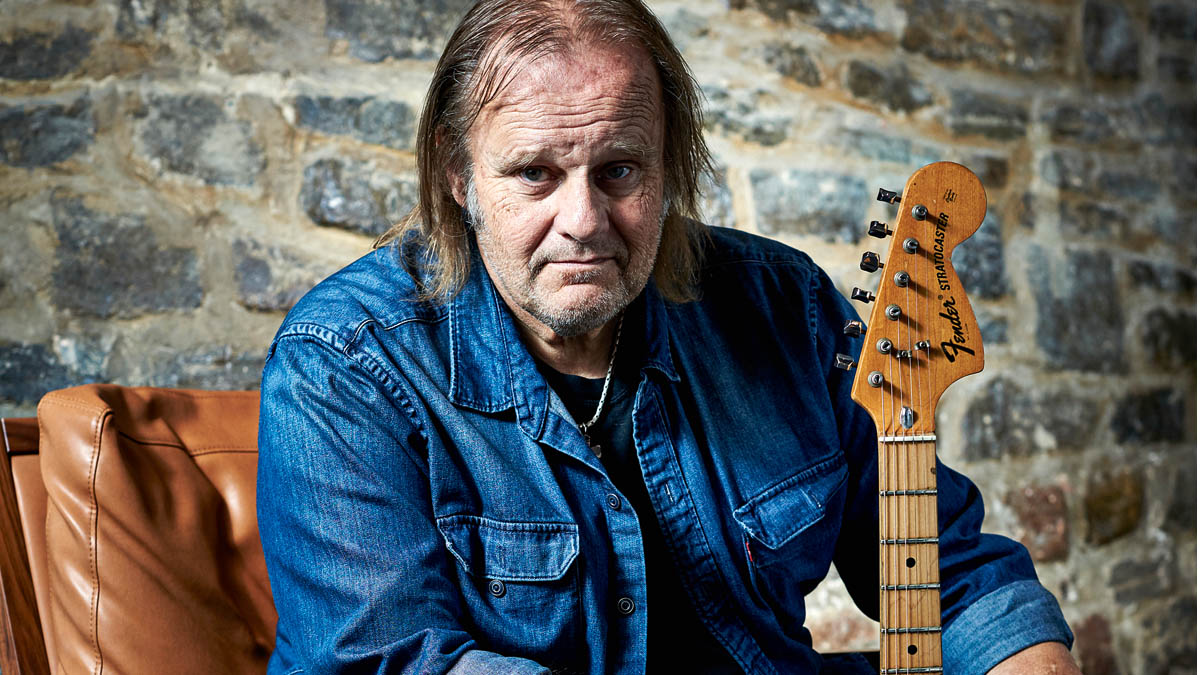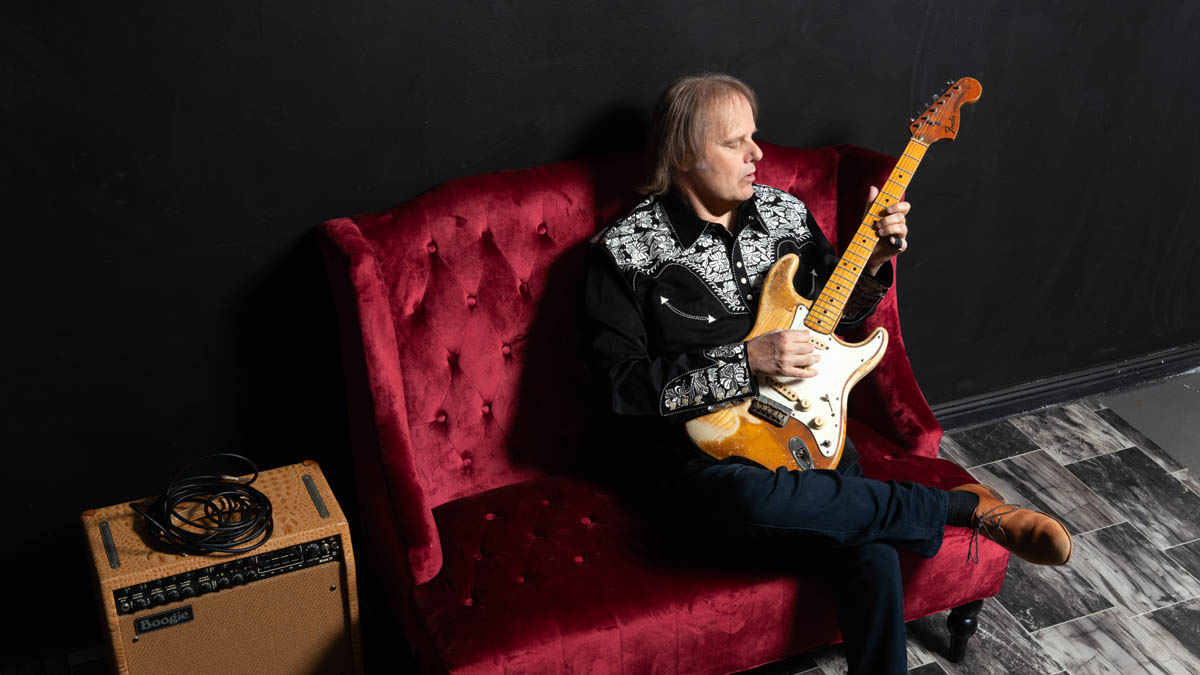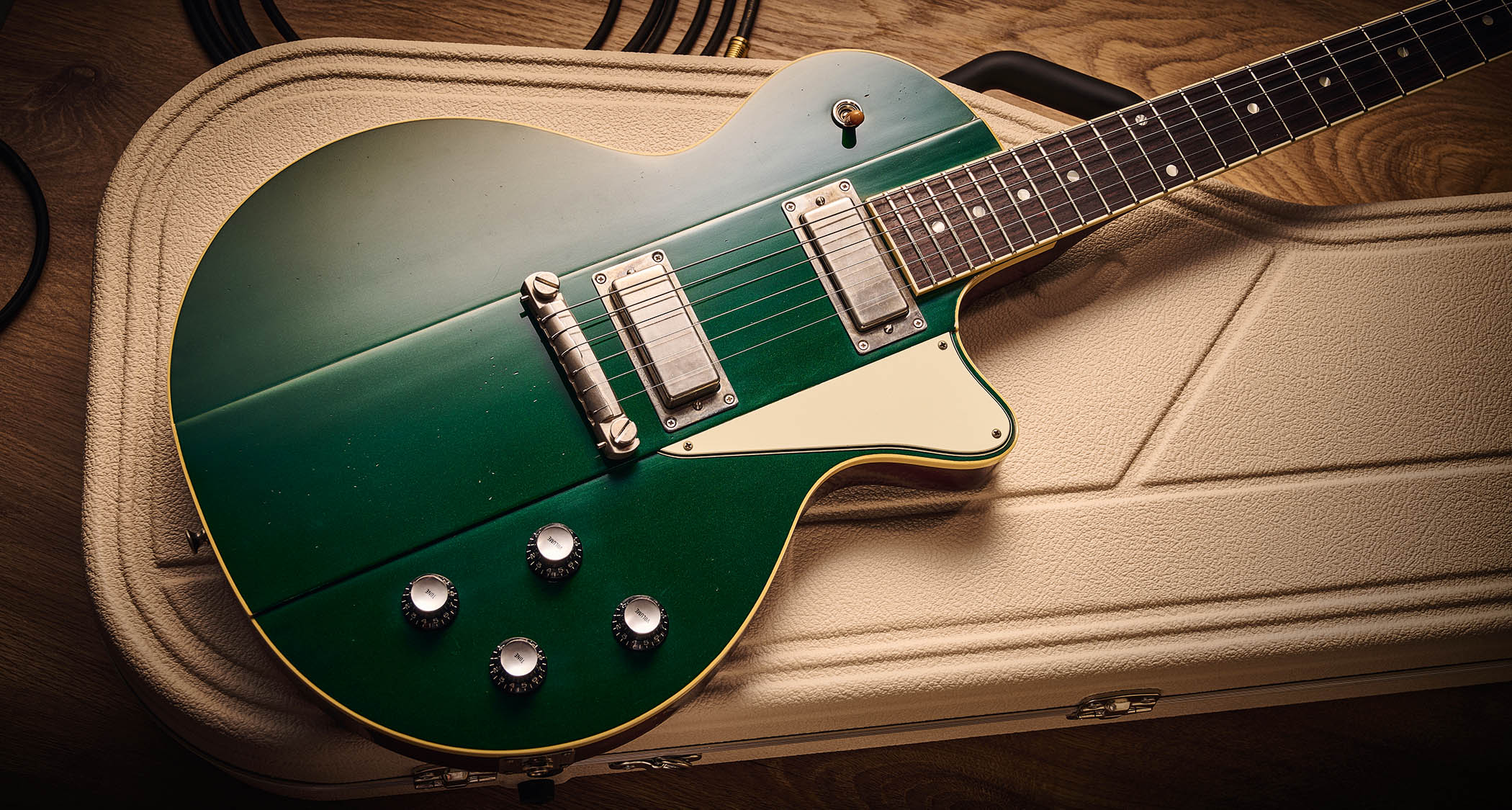Walter Trout on his best guitar-buying tip, breaking a Les Paul in two, and why he'll always be a single-coil guy
Of all the gear the ex-Bluesbreaker has owned, it's the Gibson ES-335 that got away that he misses most

What was the first serious guitar that you bought with your own money?
“My own money? I have to say that it was kind of a loan. My grandmother took me to 8th Street Music in Philadelphia in 1968 and so I was 17. I’d been playing a little while and I had a bunch of cheap, really crappy electric guitars that were terrible and that year an album called Super Session came out and Mike Bloomfield was playing a Les Paul, so I decided that’s what I had to have.
“My grandmother loaned me $200 – I think I had maybe $100 saved up and so she covered the rest and I paid her back when I worked after school – and we got one of the 1968 reissue Goldtops with the P-90s in it and it was a beautiful guitar.
“Unfortunately, maybe a year or two after that, I was in my bedroom standing up practising the guitar, playing along to a Taj Mahal album, and the strap came off, the guitar fell to the floor and the neck broke in two. I really had a bad time that night.”
Of course I’m a single coil guy. There’s buzzing and humming but that, to me, makes it feel like the guitar is alive
What was the last guitar you bought?
“It’s probably an acoustic and it would be a Collings with a cutaway that I love. My wife actually purchased it and gave it to me for Christmas and I’ve used it on a few albums.”
What’s your best guitar-buying tip?
All the latest guitar news, interviews, lessons, reviews, deals and more, direct to your inbox!
“Find one that feels right first. It’s got to feel good when you pick it up and the neck, for me, is the most important thing. The neck has to feel comfortable and it has to work with you and not fight you. It should feel silky and smooth and feel easy to play and it should invite you in. Then you can experiment with different sets of pickups and get it to sound exactly the way you want it to sound.
“When I was a kid we didn’t have that option. You couldn’t go out and buy custom-made pickups like you can now. It’s virtually limitless now – as long as the guitar feels good you can experiment with the electronics and get it to sound however you want, and you don’t have to spend thousands of dollars to get a great axe.”

Have you ever sold a guitar that you now intensely regret letting go of?
“I would say the Gibson 335 that I bought after I dropped the Les Paul. That was a beautiful guitar and it played magnificently, sounded great… But then I played a guy’s Stratocaster and decided, ‘Well, I’m going to get a Strat.’ I was broke at the time – I couldn’t keep a guitar and go and buy another one and so I decided that if I sold the Gibson I could get a Strat.
“Now I look back on it and think, ‘Yeah, I’m a Strat player and that’s what I’m known for, but that 335 was really special.’ I sold it to a friend of mine that I was in a band with and I tried to find him on Facebook. Other guys in the band have looked for him, too, because I would buy that thing back from him.”
One of the things that Leo Fender got perfect, and I realised it the first time I played a Stratocaster, is that you can control all of it with your pinkie without ever stopping playing
Are there any common design features in electric guitars that are an instant turn-off for you when you’re auditioning potential guitars?
“Let me tell you one thing about the Strat that I think Leo got perfect and no-one has made it any better… One of the problems I had when I was playing a Les Paul or a 335 was I tended to change the volume all the time and I changed the pickups all the time, too.
“I’d be playing and if I wanted to change the pickup I’d have to reach up to the top of the guitar to the pickup switch then I had to go down to the volume buttons and goof with them and it was a lot of work. It required me to stop playing for a second.
“One of the things that Leo Fender got perfect, and I realised it the first time I played a Stratocaster, is that you can control all of it with your pinkie without ever stopping playing. I can switch pickups, I can move the tone control, I can turn the volume up and down and I don’t have to quit playing. It’s all right there within reach of my little finger. I really think he got it perfect and I don’t think it can be improved upon.”
If forced to make a choice, would you rather buy a really good guitar and a cheap amp – or a cheap guitar and a top-notch amp?
“I’m gonna answer the same way that my friend Robby Krieger did and, of course, I would purchase the good guitar. Good guitars are hard to find. I’ll go into Guitar Center sometimes, we’ll be out on tour and maybe the drummer wants some drumsticks so we stop and I’ll start playing guitars and, out of every 10 I play, I go, ‘Okay, there’s one that feels great…’
“The guitar has to feel good to me; I don’t want to start adjusting the truss rod and doing fret jobs and doing the shit for it to feel right. So I’d go for the good guitar, but I do have to tell you that for 35 years I have been endorsed by the greatest amplifier company in the world bar none and that is Mesa/Boogie and, when they build a new amp, they send me one and they have been so good to me and so I don’t have a problem getting great amplifiers. My garage looks like a Boogie outlet.”
I don’t have a problem getting great amplifiers. My garage looks like a Boogie outlet
If you could only use humbuckers or single coils for the rest of your life which one would you choose and why?
“Well, of course, I’m a single-coil guy. I know with single coils there’s buzzing and humming and all that kinda stuff, but that, to me, makes it feel like the guitar is alive when it’s making weird crackling sounds. I kinda love that unless it’s too much.
“There are certain clubs that we’ve played and the buzz and the hum is just unbearable and, in that case, I might use a spare guitar that has humbuckers on it. But I’m definitely a single-coil guy: I love the sound, I love the organic, crystalline, chimey, open sound that you feel that you can fall into. There’s just something about a beautiful Strat sound that just destroys me.”
- Walter Trout’s new album, Ordinary Madness, is out now on Provogue.
With over 30 years’ experience writing for guitar magazines, including at one time occupying the role of editor for Guitarist and Guitar Techniques, David is also the best-selling author of a number of guitar books for Sanctuary Publishing, Music Sales, Mel Bay and Hal Leonard. As a player he has performed with blues sax legend Dick Heckstall-Smith, played rock ’n’ roll in Marty Wilde’s band, duetted with Martin Taylor and taken part in charity gigs backing Gary Moore, Bernie Marsden and Robbie McIntosh, among others. An avid composer of acoustic guitar instrumentals, he has released two acclaimed albums, Nocturnal and Arboretum.

